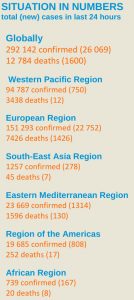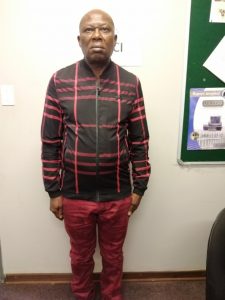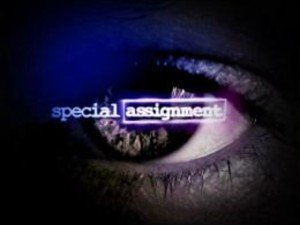MOTION FOR DEBATE:
THE SIGNIFICANCE OF NATIONAL DAYS IN THE PURSUIT OF NATION-BUILDING AND SOCIAL COHESION MOVED ON BEHALF OF THE INKATHA FREEDOM PARTY BY THE HON. MR MKHULEKO HLENGWA MP
Honourable Speaker,
Twenty years into our freedom and democracy we ought to take a moment and reflect objectively on the progress we have made as a country. We have achieved a lot; and a lot that should not have been done has been done. From our glorious hey-days of unity in diversity in 1994, we have descended into an unprecedented collapse of national unity.
In 1994 we ventured into foreign waters which called on all of us to put our shoulders to the wheel and make a meaningful contribution towards the building of a new and progressing South Africa. We charted a new vision for a new South Africa and, in 1996, we strengthened our collective resolve to this end when we adopted a unifying Constitution.
When we tired along the way, we took refuge under our Constitution. Our Constitution has been the wind under our wings as we strive each day to achieve meaningful nation-building and social cohesion, because we understand that the divisions and social cleavages of the past will best be rectified through unity and common purpose.
National Days are an integral part of this relentless pursuit of nation-building and social cohesion, because they remind us of our past and motivate us into the future. National Days are the glue which keeps us together, because, in one way or another, they hold personal significance for all South Africans.
Every South African has a freedom story for April 27.
Every South African has a Workers’ Day story.
Every South African has a June 16 experience to share.
Every South African has a Mandela experience on July 18.
Every South African is alive to the realities of August 9.
Every South African has a heritage to embrace on September 24.
Every South African has responsibility to reflect on National Reconciliation on December 16.
This is the daily life of our country.
This is the South African experience; the South African story. It is our past and it is our future. It is a legacy that belongs to all South Africans, which is the very basis of our pursuit of nation-building and social cohesion. Whilst we may differ on many fronts and subscribe to divergent persuasions; National Days unite us.
How then do we reconcile this ideal with the sad reality of National Day celebrations and commemorations being monopolised to the detriment of nation-building and social cohesion?
It has become standard practice for National Day celebrations to become ANC functions, incurring abuse of State and Government resources. ANC songs reverberate throughout these functions and ANC supporters heckle and boo opposition parties.
This country is doomed if we embrace the conflation of Government, State and Party. Government and State functions and events are exactly that; they are not ANC functions. The ANC is not the Government nor is it the State; it simply happens at this point in time to be the party in governance. This difference must be asserted, or South Africa will end up being neither fish nor fowl.
Prince Mangosuthu Buthelezi, from this podium, made a notable observation which best diagnoses the problem of national disunity and the reversal of our gains. He said, “Twenty years ago, words like “rainbow nation”, “miracle transition”, “freedom” and “reconciliation” filled the public discourse. Under [this leadership], those words have become “Marikana”, “scandal”, “protest” and “corruption”.”
Also from this podium, President Jacob Zuma inadvertently highlighted the problem when he said, “Sorry, we have more rights here because we are a majority. You have fewer rights because you are a minority. Absolutely, that’s how democracy works. So, it is a question of accepting the rules within democracy and you must operate in them.”
This fundamental misinterpretation of democracy has found expression in endless Government functions where blatant abuse of taxpayers’ money fulfils the ANC’s need for self-promotion and political hegemony.
When rights are dispensed through an “us-and-them” mentality, equality and unity are negated, while nation-building and social cohesion are utterly destroyed. Thus the very events which are meant to unite us, divide us. They have become the exclusive domain of the ruling party.
The narratives, facts and scripts of history are rewritten before our very eyes to suit the propaganda that the party in governance is our sole liberator; negating the role of other parties, churches, traditional leaders, NGO’s and friends of human rights and democracy the world over. We have made a mockery of our history, and this mockery plays itself out every time a National Day is commemorated.
National Days have been reduced to carefully choreographed talk-shops and rallies which play on the psychology of the poor and suffering, while making no real change in their lives. Unemployment, inequality and poverty are a daily reality. Juxtaposed to the rhetoric and commitments so often expressed, it is apparent that failure is the new order of Government.
These National Day events manufacture little more than tenderpreneurs, lining the pockets of friends and cronies at the expense of the poor, vulnerable and suffering. They are filled with fanfare and food parcels. But when they are over, our people go back to poverty, pain and suffering, with no meaningful change to their lives. Only two things have happened: tenderpreneurs have made money and the ruling party has enjoyed a free propaganda exercise.
We have a collective national responsibility to debate how we celebrate and commemorate our National Days. It is high time that National Days become about South Africa, because when every other effort at nation-building collapses, we must rely on this glue to keep us together.
We must rise above petty political divides and propaganda. Not everything is about the party in governance. Making it so alienates everyone else and divides us as a nation. Clearly what is needed is a dramatic change of mind-set on the part of the ruling party. Without this, nation-building and social cohesion are destined to fail.
I thank you.








